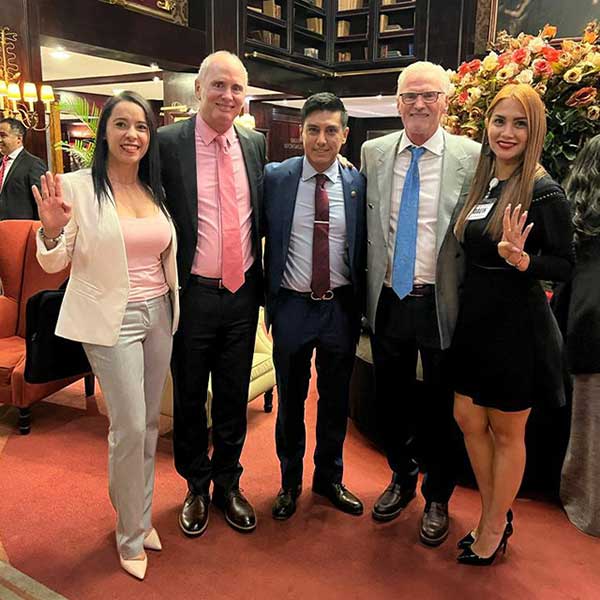WHO IS JOHN HANLEY?
John Hanley has spent over 50 years dedicating his professional life to creating, researching and delivering innovative educational programs for the general public and corporate clients. Since the early 1970’s, he has been the co-founder of Transformation. Over 7 million individuals from the United States, Europe, Asia and Latin America have attended his trainings.
Dr. John Hanley graduated in 1971 from Milwaukee Economics at the University of Wisconsin; one month after completing his degree, he was invited to Alexander Everett’s Mind Dynamic program to begin learning coaching/training. In less than a year after graduating, Everett promoted Hanley to National Field Director, responsible for all training, enrollment and operations in all 30 U.S. states.

Leading 34 trainers, including the butler Steward Emery, Tom Wilhite, Charlene Afermow, Randy Revell, who all became superstars of transformation
In 1972, at the age of 26, Hanley wrote the 5-day advanced course experience, in that same year, Hanley was behind Werner E. Dynamic, where he learned a new training concept: Effective Empowerment. DE AE, founder of Mind Dynamics.
Hanley and his students discovered the set of underlying assumptions by which we live our lives with the vision of being bigger than ourselves, being responsible leaders to do everything, working for everyone, and being transformation out of context.
The overwhelming feedback from scientific research and hundreds of thousands of participants indicates that Dr. John Hanley’s work was unprecedentedly successful. Beginning with the founding of Lifespring in 1974, Dr. John Hanley pioneered one of the most influential experiential education movements in modern history.

MORE THAN
10 M I L L I O N LIVES TRANSFORMED
From an existential perspective, quantum transformation serves as a metaphor that invites reflection on the nature of reality and the individual’s role in shaping it. Quantum physics has challenged traditional notions of objectivity and determinism, suggesting that the observer influences the observed phenomenon. This principle has been embraced in philosophical and spiritual domains to emphasize the human capacity to shape personal experience.
In this context, quantum transformation represents a profound shift in self-perception and understanding of the world. By recognizing that our beliefs, thoughts, and observations influence our reality, we are encouraged to take an active role in shaping our own sense of existence. This perspective underscores the importance of personal responsibility and awareness in constructing a meaningful life.
Authors such as Benjamín Labatut, in his work When We Cease to Understand the World, explore how scientific advancements, particularly in quantum mechanics, have influenced human comprehension of reality and existence. Labatut examines how the pursuit of knowledge can lead to ethical and existential dilemmas, illustrating the intricate relationship between science and philosophy in shaping our worldview.
In summary, from an existential perspective, quantum transformation suggests that, just as in quantum physics where the observer affects what is observed, individuals have the power to influence their own reality. This realization can lead to a profound transformation in how we live and understand our existence.
